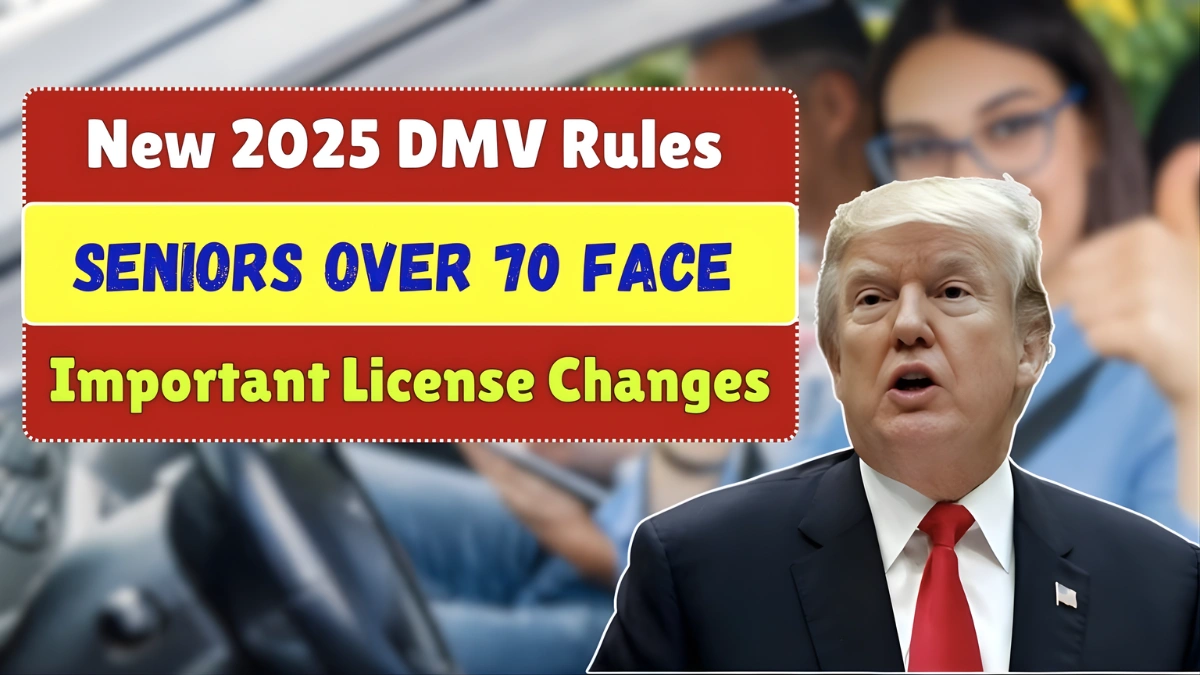Several U.S. states are updating their DMV rules for seniors aged 70 and above starting in 2025. These important changes affect license renewals, testing requirements, medical evaluations and in-person visits. With safety concerns increasing and states working to modernize driver licensing, millions of older Americans will need to prepare for stricter guidelines.
Here is your complete, Google Discover–friendly breakdown of the new 2025 DMV rules for seniors, which states are affected and how these changes impact everyday driving.
Why DMV Rules Are Changing in 2025
States are updating senior driver requirements to improve road safety, reduce age-related accident risks and ensure medically fit drivers remain on the road. Many of these rules tighten renewal procedures and introduce new evaluations, especially for drivers aged 70, 75 or 80, depending on the state.
The 2025 updates focus on identification accuracy, vision clarity, cognitive screening and more frequent license monitoring.
States Requiring In-Person License Renewals for Seniors
A growing number of states now require seniors over 70 to renew their license in person. This means no online or mail renewals for older drivers. DMV staff will perform identity checks, vision screenings and, in some cases, driving assessments.
States applying or expanding these requirements in 2025 include California, Illinois, Florida, Colorado, Ohio and Maryland, along with several others updating their policies.
New Vision Testing Requirements
Many states are making vision tests mandatory at every renewal once a driver turns 70. Some states previously required testing only at certain ages, but 2025 rules create a uniform requirement for older drivers.
Seniors may need to bring proof of corrective lenses, prescription eyewear or a recent optometrist report if they fail the standard DMV vision screen.
Cognitive and Medical Evaluation Changes
Because cognitive decline is a growing concern for older drivers, some states are introducing additional assessments. These include brief cognitive screening questions, reaction-time tests or professional medical evaluations if DMV examiners detect red flags.
Drivers with medical conditions affecting alertness, such as severe diabetes, sleep apnea, or early-stage dementia, may need doctor documentation to keep driving privileges.
Shorter License Renewal Periods for Older Drivers
One of the biggest changes in 2025 is the reduction of renewal periods. Instead of 6–8 year renewals, seniors may now receive only 2–4 year license validity depending on the state. This allows DMVs to more frequently reassess driving ability and health status.
Some states also require earlier renewals if a senior reports new medical conditions or has traffic violations within a given period.
Road Test Requirements Returning in Some States
While not universal, several states are reintroducing road tests for drivers above a certain age if there were past violations, accidents or medical concerns. A limited number of states automatically require road tests once a driver turns 75 or 80.
The goal is to ensure seniors can safely handle modern traffic patterns, freeway driving, night visibility and multi-lane intersections.
Digital and Real ID Requirements Also Changing
With REAL ID deadlines approaching, seniors renewing licenses in 2025 may need to present updated documents such as birth certificates, passports, or Social Security verification. Some DMVs are also transitioning to digital driver’s licenses, but seniors must still carry a physical card until nationwide rules change.
What Seniors Should Do Before Renewing in 2025
Retirees over 70 should check their state DMV website early to confirm age-specific requirements. Scheduling an in-person appointment weeks in advance is recommended, as DMV locations may be crowded due to increased documentation and testing. Updating vision exams, gathering identity paperwork and having a doctor complete any required medical forms will help avoid delays.
Conclusion: The 2025 DMV rule updates for seniors over 70 represent a significant shift toward tighter safety oversight and more hands-on evaluations. In-person renewals, stricter vision standards, shorter license durations and possible medical screenings mean older drivers must prepare well ahead of time.
These changes aim to protect seniors and all road users while ensuring that driving privileges remain safe and responsible.
Disclaimer: This article summarizes widely reported DMV policy updates for 2025. Rules vary significantly by state, so seniors should verify requirements through their official DMV website.





